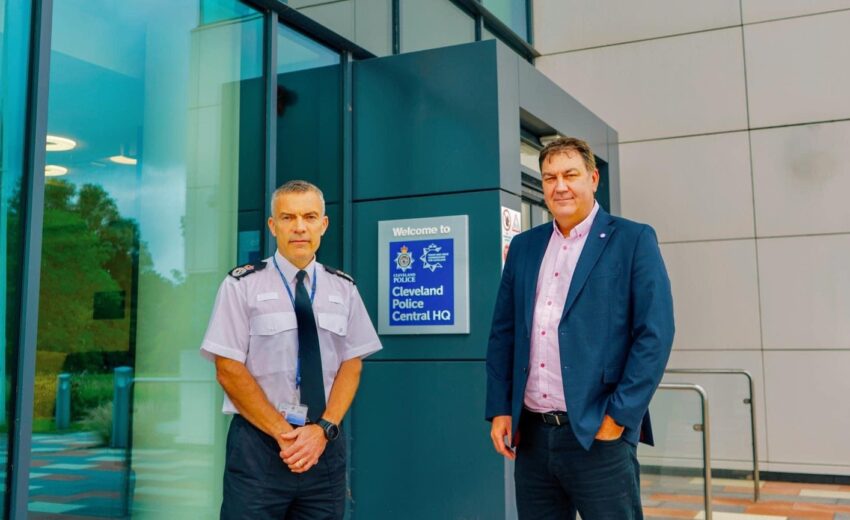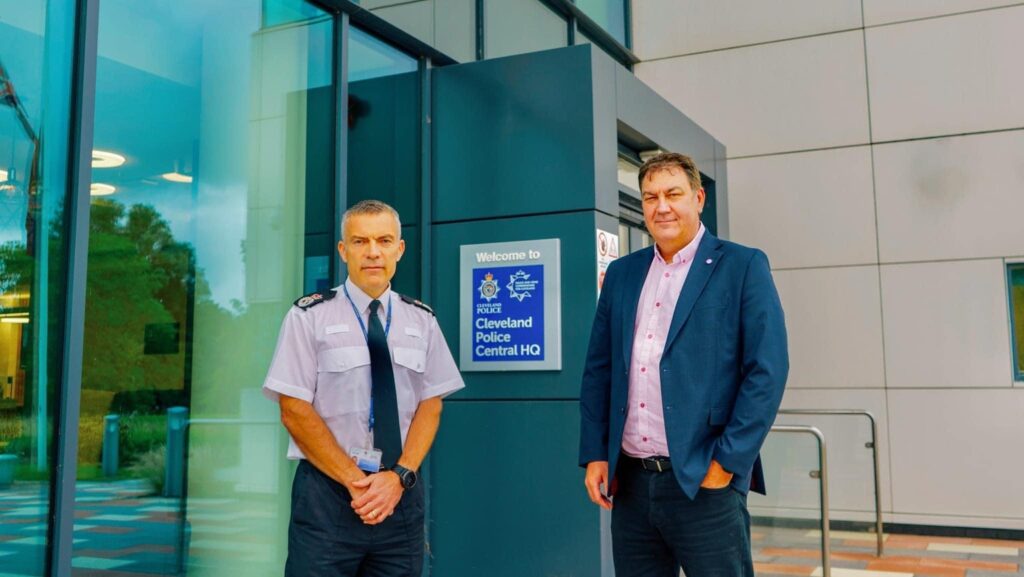

Q: What have sleeping bags for refugees and the London marathon got in common?
A: They were both key milestones in my resilient leadership story.
According to Chat GPT, “Resilience in Leadership” is 4th on a list of trending leadership topics on LinkedIn. I’m not surprised. In today’s whirlwind of a business world, developing resilience as a leader is like learning to dance in a storm without missing a beat!
Picture me, a vastly experienced leader with thirty odd years’ experience but I’m on a huge learning curve through the early weeks and months of being a Police and Crime Commissioner. I’m also not just any PCC, no, I’ve been elected to oversee and turnaround the worst Police force in the country. No pressure there then!! It’s a job I wanted though and I’m giving it everything I’ve got whilst trying to juggle responsibilities, setbacks, and the occasional curveball thrown by life.
Spoiler alert: I’ve taken a fair share of hits in my time, but nothing prepared me for the journey to become a seriously resilient leader, even if ultimately, it was one of the most eye-opening adventures I’ve ever embarked on. So, grab a cup of coffee (or your favourite beverage) and join me as I share my experiences and insights on building resilience as a leader.
The Rollercoaster of Those Early Days
When I first stepped into the role, I was brimming with enthusiasm and optimism. I felt like a captain steering a ship towards uncharted waters, ready to conquer the world. But, as you might guess, the reality of leading this particular ship hit me like a tidal wave. Challenges cropped up faster than I could say “team meeting.” Projects didn’t always go as planned, I could see that across the force team dynamics were a constant balancing act, and stress levels were off the charts. It didn’t take long for me to realise that being a leader in this environment wasn’t going to be just about making decisions; it would be about navigating through rough seas with resilience. As it turned out, I didn’t know the half of it.

Icebergs Ahead!
My first big lesson in resilience came just weeks into the role. A local MP decided he’d rather see the force go down in flames than watch me succeed. It was his brainchild to attack me initially using his Parliamentary privilege to state lies about my background before he, and other opponents, were feeding the press with call after call for me to resign. This wasn’t my first rodeo though and, after weathering such a storm, I was convinced it would get better.
How wrong I was. Shortly after that things started to unravel pretty quickly. We still had major problems within the force, and I’d agreed with the Chief Constable that he would be leaving before the year was out. On top of that I was fending off allegations about him and his leadership team from a variety of angles plus the force really wasn’t looking any closer to turning things around than it was when I arrived just a few short months earlier. Deadlines were missed, communication broke down, and the end results were far from what I had envisioned or asked for. Then the storm really broke. Serious, false allegations fed to the outgoing Chief Constable and the national media like bones to dogs from our puppet master MP. The media backlash was huge. I felt like I was about to become a shipwrecked sailor, blamed by so many for things I had never done and then dragged to my watery grave for no other reason than the colour of the rosette I wore.
But here’s the thing about resilience: it’s not about avoiding the storm; it’s about bouncing back from it.
I was down but not out, and I had no time or desire at that point to reflect on what went wrong or, more importantly, what I could learn from it. Life changed in that moment, and I sought feedback from my family, my team, and my mentors instead of dwelling on the unfairness of it all. I had to make a tough decision. Nobody, and I really mean nobody, would have blamed me for walking away at that point and the honest truth is that I was about to until I received a single text message from a friend one Saturday morning telling me to “sack it all off” and go and work for him. I drew on that message and the knowledge that my past experiences had shown that resilience involves embracing the challenge, take learnings from it, and come back stronger than ever before.
Adapting to Change Whilst Fighting in the Dark
If there’s one constant in the leadership, it’s change. And boy, did I have to learn that the hard way. I had a new Chief exec, (one of my better decisions), I needed a new Chief Constable (Probably my best decision), a senior leadership team, a new complaints model, violence reduction unit and digital contact app. The list could go on, but you get the gist. Everything was either new or changing and this was the period when the force underwent its major restructuring and change of strategic direction. Teams were shuffled, roles changed, and uncertainty loomed large. It felt like trying to dance on quicksand. There had never been change of this magnitude in the force and all the while, I was still having to fight demons in the dark. Both my own, and those manifested by individuals who were determined to see me gone, one way or the other. This my friends is where resilience truly shines.
I knew that to navigate change of such magnitude, and under this much pressure, that I needed to adapt quickly and maintain a positive mindset. Instead of worrying about the changes, I chose to see them as opportunities for growth. I encouraged my team to embrace the unknown, and together, we found new ways to collaborate and innovate. Resilience, I discovered, is about being flexible and open to change, no matter how daunting it may seem.

But What About the Marathon?
In the midst of all the chaos, it’s easy to neglect self-care. I used to think that being a resilient leader meant working around the clock to “Get shit done!” but I soon learned that burnout is a real threat. Taking care of myself became a priority as did finding a coping mechanism. I knew all about practicing mindfulness and stress management techniques They can be game changers for some people but for me, and the personal challenges I was facing, it wasn’t going to be enough. Then, out of the blue one day an email popped up from the Crimestoppers Charity saying they were looking for runners to raise funds by taking part in the London Marathon. A light just went on in my head. This was it, no short meditation sessions or walks in the park for me. No simply taking a few minutes to breathe deeply, hoping to “centre” myself to remain focused. No, I’d embrace my newly downloaded training plan and bury my downtime in a sea of sore muscles and carb loading.
It really wasn’t easy. I’m not built to be a runner, and I don’t actually like it, but I sought out support from mentors and coaches who played a crucial role. Their guidance provided me with different perspectives and helped me navigate through tough times. My lighthouse though, guiding my ship through the stormy seas was my wife who peddled alongside me for every long training run, and we talked through every aspect of life far better than any therapist or councillor could ever have hoped to.
That Doesn’t Explain the Sleeping Bags Though
Emotional intelligence is like the secret sauce that makes resilience possible. Understanding and managing my emotions, as well as empathising with others, allowed me to lead with compassion and clarity. I made it a point to listen actively, communicate openly, and recognise when other people needed support. This not only helped in building trust but also in creating a positive and supportive work environment. Well, that’s what I told myself.
The reality was though, that even when every word is true it still wasn’t enough. There is so much that’s wrong in our world and we can wax lyrical about leadership and problems all we want but at that time people were dying in the Ukraine and were being forced to flee their homes. I saw first-hand TRUE resilience on the news everyday so when an opportunity came up to be part of a convoy taking aid to Poland for transfer to the Ukrainian border I jumped at the chance. It was an awesome feeling to know that my vans cargo of sleeping bags would make more of a difference to people’s lives than a lifetime of coaching. That really puts things into perspective for us all, and, to this day, it’s a memory I draw on when things start to spiral.
It’s All About Mindset Then?

That’s partly true. There’s no denying that one of the biggest shifts in my journey was developing a growth mindset. Instead of seeing challenges as obstacles, I began to view them as opportunities to learn and grow. This mindset shift was massive for me. It enabled me to approach problems with curiosity and creativity, rather than fear and frustration. Don’t get me wrong, those emotions were still there along with all the others you would expect, after all, I’m certainly not Buddha or Master Yoda! I encouraged my team to adopt a similar mindset and created a culture of continuous improvement and innovation which I’m proud to say is part of the legacy I have left within the OPCC.
Having a positive organisational culture like that acts as a multiplier for resilience. When you’re focused on fostering an environment where open communication and feedback is encouraged its far easier to surmount any problem that comes your way. Celebrating successes, no matter how small, and recognising the efforts of team members boosts morale and motivation. Then, when you’re leading with a strong work ethic and perseverance, your team will be inspired to do the same.
What Did I Really Learn
Building resilience as a leader is an ongoing journey. It’s about continuously learning, adapting, and growing. The challenges will keep coming, whether you want them to or not, but with resilience, we can navigate them with grace and determination. I’ve always been good at dealing with stress but, in hindsight, I was never going to be prepared for what came my way. Today though, I feel even better equipped to handle it, make effective decisions under pressure, and inspire my teams through thick and thin.
So, to all aspiring leaders out there, remember this: resilience isn’t about never falling or taking a hit; it’s about getting back up every time you do. It’s about turning setbacks into comebacks and leading with heart and strength. Embrace the journey, take care of yourself, and keep dancing through the storms. You’ve got this

What have sleeping bags for refugees and the...



